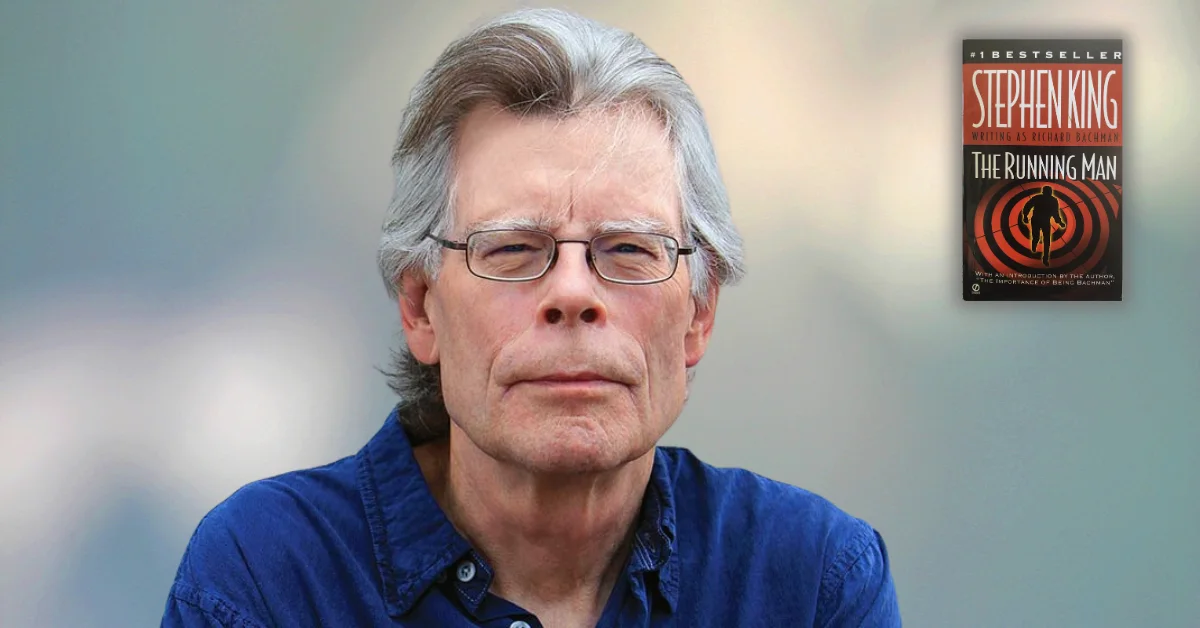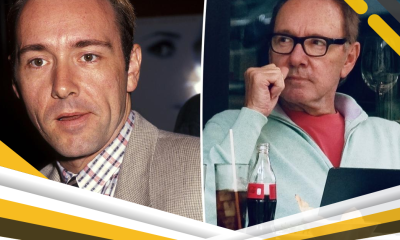Stephen King, The Running Man — The Real-World Reality TV Cases That Make the Novel Terrifying Today

Stephen King, writing as Richard Bachman, unleashed a dystopian vision upon the world in 1982 with his novel The Running Man. What once felt like a darkly imaginative, if extreme, commentary on media and desperation, now, with the pervasive influence of reality television, reads like a chillingly prescient prophecy.
As an observer of both literature and popular culture, I find myself continually drawn to how King’s terrifying narrative echoes in the real-world cases of reality TV, making the novel more relevant—and more unsettling—than ever before.
| Detail | Description |
|---|---|
| Author | Stephen King (under the pseudonym Richard Bachman) |
| Original Publication Year | 1982 |
| Genre | Dystopian, Thriller, Science Fiction |
| Core Theme | Exploitation of human desperation for entertainment, media control, social inequality |
| Enduring Relevance | Parallels with modern reality television and societal voyeurism |
Understanding The Running Man: A Game of Life and Death
In a grim, economically stratified future America, the most popular television program is “The Running Man,” a deadly game show produced by the government-controlled Games Network. The premise is stark: contestants, primarily those living in poverty and desperation, volunteer to be hunted by professional assassins, known as “Hunters,” for a chance at a massive cash prize.
If they can evade capture and survive for 30 days, they win a billion dollars. The catch, of course, is that no one has ever survived. The protagonist, Ben Richards, a jobless father in desperate need of money for his sick child, enters the game, knowing full well the almost certain fate that awaits him.
The show is broadcast live, 24/7, with constant updates and audience participation, turning human suffering into a prime-time spectacle.
King’s narrative brilliantly explores themes of government oppression, class warfare, and the insatiable human appetite for sensationalized violence. The audience of “The Running Man” is complicit, tuning in daily, captivated by the hunt, effectively condoning the state-sponsored murder for entertainment.
The Evolution of Reality Television: From Candid Camera to Crisis Point
When reality television first gained widespread traction in the late 20th and early 21st centuries, it often presented itself as a harmless glimpse into ordinary lives or novel social experiments. Shows like MTV’s The Real World offered a window into the lives of young adults sharing a house, while Survivor introduced the concept of strategic gameplay in an exotic location.
However, as the genre matured and competition for ratings intensified, producers began to push boundaries, seeking more dramatic scenarios, heightened emotions, and, at times, genuine human struggle for the camera. This pursuit often led to ethical questions regarding exploitation, privacy, and the psychological impact on participants.
Real-World Reality TV Cases That Echo King’s Disturbing Vision
While no reality show has reached the literal brutality of “The Running Man,” several real-world examples and trends in unscripted television carry a chilling resonance with King’s dystopian foresight. These cases highlight how economic desperation, the allure of fame, and the hunger for ratings can converge to create scenarios that, while not deadly, are deeply exploitative and ethically questionable.
Exploiting Desperation for Entertainment
- The High-Stakes Game Show Trope: Shows like Deal or No Deal or even earlier quiz shows, while ostensibly about skill or luck, capitalize on the palpable desperation of contestants to win life-changing sums of money. The emotional roller coaster, often magnified by dramatic music and camera angles, turns financial need into public entertainment. While not literally hunted, participants’ economic vulnerability becomes the very engine of the show.
- “Poverty Porn” and Lifestyle Documentaries: Certain reality programs have faced criticism for what is termed “poverty porn,” where the struggles of individuals or families living in difficult circumstances are presented for viewer consumption, sometimes with little tangible benefit to the participants beyond immediate, often temporary, financial relief. These shows often focus on dramatic narratives of hardship, making the subjects’ lives a spectacle.
The Psychological Toll and Loss of Privacy
- Long-Running Social Experiments: Programs like Big Brother, which isolate contestants for extended periods and subject them to constant surveillance and strategic manipulation, often lead to significant psychological stress. The constant pressure to perform for the cameras, navigate complex social dynamics, and face public judgment upon exiting the house mirrors, in a less violent way, the relentless scrutiny Ben Richards faces. The erosion of privacy and the emotional toll on participants have been well-documented.
- “Transformation” and “Intervention” Shows: Many shows focus on individuals undergoing significant life changes, from weight loss to addiction recovery. While some aim to be genuinely helpful, others are criticized for sensationalizing personal struggles, creating highly emotional, often uncomfortable, viewing experiences that prioritize drama over the true welfare of the participants. The raw vulnerability of individuals is often showcased, bordering on exploitation.
The Spectacle of Human Conflict and Public Shaming
- Competitive Reality Shows: While not physically deadly, the intense pressure, manufactured rivalries, and public voting systems in many competitive reality shows, from singing competitions to cooking contests, create a highly stressful environment. Participants face public humiliation and intense criticism, often for the entertainment of millions. The public becomes the judge and jury, often with little empathy for the human beings on screen.
- The “Villain” Narrative: Producers frequently craft narratives that designate certain participants as “villains” or “heroes,” encouraging viewers to take sides and even engage in online harassment. This mirrors the way the Games Network manipulates public perception of Ben Richards, demonizing him to justify the hunt.
Edgar Wright’s The Running Man: A Modern Reimagining
The timelessness of King’s narrative is further underscored by the upcoming adaptation from acclaimed director Edgar Wright. A new trailer for Wright’s *The Running Man*, starring Glen Powell as Ben Richards, was recently released, offering a fresh, action-packed look at this dystopian chase.
Set to premiere in theaters on November 14, 2025, the film promises to be a more faithful adaptation of King’s 1982 novel than the 1987 Arnold Schwarzenegger movie, which significantly diverged from the source material.
Wright’s version brings Ben Richards back to his roots as an ordinary man driven by desperation to save his sick daughter, rather than a wrongly convicted cop. This shift emphasizes the economic inequality and personal stakes that were central to King’s original story.
The trailer showcases a near-future society where “The Running Man” is the top-rated television show, a deadly competition where contestants must survive 30 days while being hunted by professional assassins, with every move broadcast to a “bloodthirsty public.” Josh Brolin co-stars as the ruthless producer Dan Killian, and Colman Domingo plays the charismatic host Bobby Thompson, roles critical to manipulating public perception and driving the show’s grisly entertainment.
The updated adaptation, with its focus on modern surveillance technology and a nation addicted to spectacle, seems poised to make King’s cautionary tale resonate even more powerfully in our current era of ubiquitous screens and heightened media consumption.
Why The Running Man Remains Terrifying Today
The enduring terror of The Running Man lies in its unflinching portrayal of humanity’s darker impulses when amplified by technology and media. What seemed like a far-fetched premise in the 1980s has found unsettling parallels in the evolution of reality television.
- The Commodification of Suffering: King imagined a world where human life was the ultimate prize for entertainment. Today, while not to the point of literal death, we routinely see reality shows profit from participants’ vulnerability, emotional distress, and desperate attempts to achieve fame or financial security.
- Audience Complicity: The novel’s audience eagerly tunes in, becoming implicit in the hunt. Modern reality TV thrives on viewer engagement, whether through voting, social media commentary, or simply tuning in, creating a collective consumption of staged or genuine human drama that can feel disturbingly voyeuristic.
- The Blur Between Reality and Performance: As reality TV increasingly blurs the lines between genuine unscripted moments and carefully constructed narratives, it edges closer to King’s world where “reality” is entirely manufactured for maximum impact. The participants become characters, their lives edited and shaped for public consumption.
- The Lure of “Easy” Money/Fame: Just as Ben Richards is driven by financial desperation, many reality TV contestants are drawn by the promise of quick fame or significant prize money, often at the cost of their privacy, dignity, and mental well-being.
Conclusion
Stephen King’s The Running Man, initially a visceral dystopian thriller, has transformed into a haunting reflection of our present reality. The novel’s core premise—that human suffering can become the ultimate entertainment—has found uncomfortable resonance in the more extreme and ethically dubious corners of reality television.
As we anticipate Edgar Wright’s new film, I believe its release will serve as a stark reminder of King’s uncanny ability to tap into societal anxieties and foresee a future where the lines between entertainment and exploitation become terrifyingly blurred. It challenges us to consider our own roles as consumers of media and the ethical cost of our collective thirst for spectacle.
FAQ Section
The Running Man was written by Stephen King under the pseudonym Richard Bachman. It was first published in 1982.
The novel is set in a dystopian future where a popular reality game show, “The Running Man,” features desperate contestants who are hunted by professional assassins. If a contestant can survive for 30 days, they win a billion dollars; however, no one has ever survived.
The novel’s themes of economic desperation, sensationalized violence for entertainment, audience complicity, and the exploitation of participants find chilling parallels in various modern reality television shows that push ethical boundaries for ratings and profit.
Yes, director Edgar Wright has a new adaptation of The Running Man starring Glen Powell, set to be released on November 14, 2025. This film is intended to be a more faithful adaptation of Stephen King’s novel than the 1987 film.












